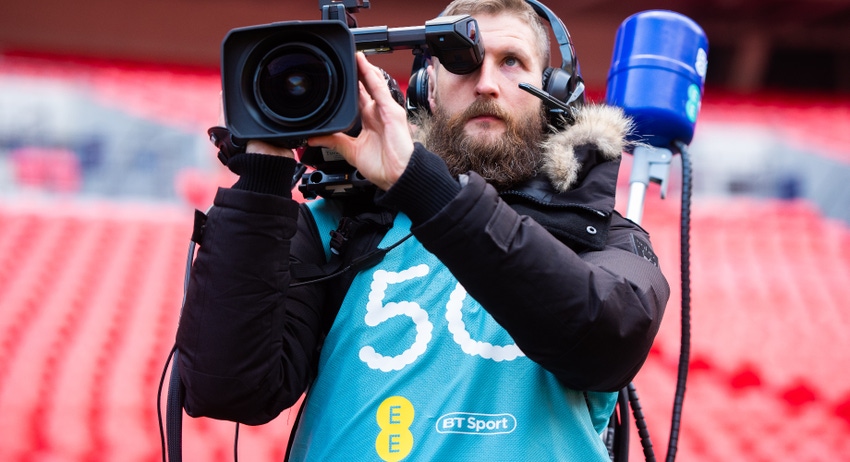BT has inked a joint venture deal with Warner Bros Discovery to merge their respective sports content offerings into a new entity, but they have yet to make a call on a new brand.
May 12, 2022

BT has inked a joint venture deal with Warner Bros Discovery to merge their respective sports content offerings into a new entity, but they have yet to make a call on a new brand.
For now, BT Sport and Eurosport UK will retain their separate brands and services, but they will be brought under a single identity and some undisclosed point “in the future,” BT said, in a statement issued on Thursday alongside its full-year results announcement.
The UK incumbent’s financials don’t contain any big surprises, incidentally, but the markets reacted well to earnings growth; adjusted EBITDA was up by 2% to £7.58 billion in 2021, aided by cost control. However, the telco’s topline continued its downward trend, sliding by 2% year-on-year to £21.37 billion, hit by declines in Global and Enterprise, while the Consumer division remained flat.
The operator expects a slight revenue hit as a result of the Discovery deal. Following completion of the JV, which it expects to occur this calendar year, it foresees an annual revenue drop of £0.5 billion-£0.6 billion relative to FY2022, the one covered by its new report. BT said it does not expect the deal to affect its adjusted EBITDA outlook for the current year – it is looking for earnings of at least £7.9 billion in FY23 and guiding for “growth” in revenue – but will confirm all its outlook metrics once the deal closes.
The announcement of the deal was something of a formality, BT having revealed back in February that it was holding exclusive talks with Discovery with a view to creating a 50:50 sports broadcasting joint venture. That cleared up rumours that swirled for much of the past year regarding BT’s plans to exit sports with an oft-mentioned deal with DAZN in the pipeline.
Of course, BT could well use the JV to fully exit the sports business. Under the terms of the deal, Warner Bros Discovery and BT will each hold a 50% of the new entity, but Warner Bros Discovery will hold a call option on BT’s stake, exercisable at various points over a four-year period. It could be, then, that BT is not involved in the rebranding decision at all.
In the short term, assuming the proposed tie-up meets the usual closing conditions, including gaining regulatory approvals, the JV partners will be hoping that the new entity benefits from its increased scale to compete more effectively in the sports broadcasting space.
“We’re excited to be joining forces to bring the best of BT Sport together with Eurosport UK to create a fantastic new sports offer alongside all the entertainment that discovery+ has to offer BT customers,” said BT’s Consumer CEO Marc Allera, in a statement.
The upside for customers is pretty clear: potentially access to more content without having to add more TV subscriptions. Just because it is now bigger, the new entity will not necessarily have a clear run on goal.
“Will the combined entity still have the financial clout to renew and buy new sports rights?” asks analyst Paolo Pescatore of PP Foresight. “There are new players waiting in the wings and let’s not forget DAZN who lost out on acquiring BT Sport,” he said, noting that the focus is now squarely on the acquisition of rights for the UEFA Champions League and Europa League.
Indeed, although the merged BT/Eurosport unit boasts of a broad portfolio of sports rights, including rugby, cycling and tennis, its fortunes will still hang on the acquisition of high-priced football rights, one of the very issues that troubled BT – making a return on those rights, that is – as it made the decision to pull back on sports in the first place.
A deal has been done here, but the game is far from over.
About the Author(s)
You May Also Like








.png?width=300&auto=webp&quality=80&disable=upscale)


_1.jpg?width=300&auto=webp&quality=80&disable=upscale)


.png?width=800&auto=webp&quality=80&disable=upscale)